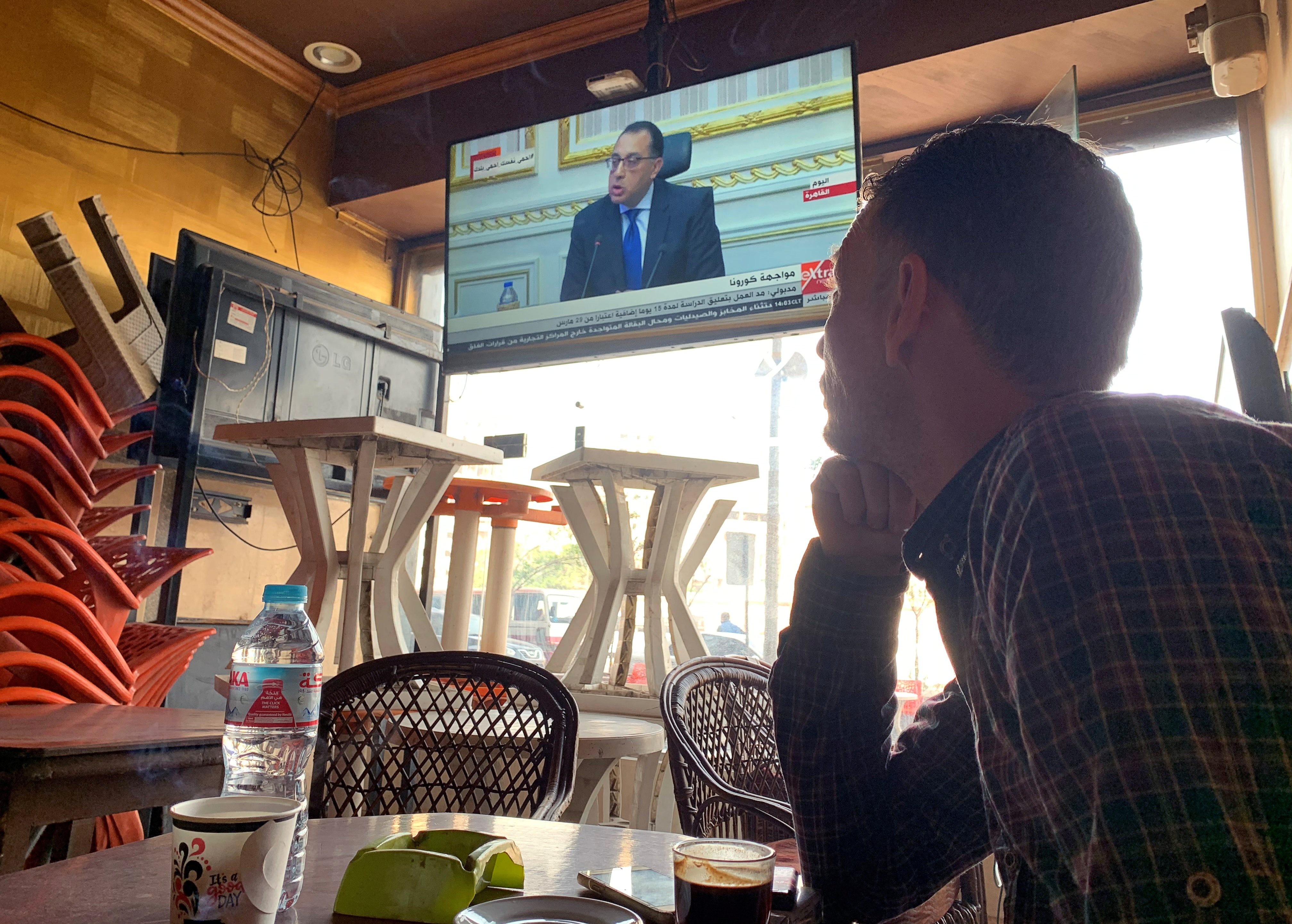By Mahmoud Mourad and Aidan Lewis
CAIRO (Reuters) - Egypt has declared a curfew from 7 p.m. to 6 a.m. for two weeks from Wednesday to prevent the spread of coronavirus, and those who violate the measure will be punished under emergency laws, the prime minister said.
Flights, which were suspended at Egyptian airports on March 19 until the end of the month, will remain grounded for an additional two weeks until April 15.
A closure of schools and universities will also be extended to mid-April, while cafes, sports clubs and gyms will be shut for the next two weeks and restaurants will be restricted to deliveries.
Shops other than food stores and pharmacies will be required to close from 5 p.m., two hours earlier than previously, as well as at weekends.
Those who do not respect the new rules face fines of up to 4,000 Egyptian pounds ($255) or prison, Prime Minister Mostafa Madbouly told a televised press briefing.
"I call on all Egyptians to fully comply with these measures," President Abdel Fattah al-Sisi said on Twitter. "And I affirm that all elements of the Egyptian state will confront any attempts to breach them with the utmost firmness and resolution."
The number of coronavirus cases confirmed by the health ministry rose by 36 on Tuesday to 402. There was one new death, bringing the total to 20.
Senior officials have sought to reassure the public that they are able to contain coronavirus and that information on cases is being released quickly and transparently.
"Compared to surrounding countries, we are still at the stage of being able to contain the spread of the epidemic," Madbouly said.
Ahead of the briefing, state TV aired a video that highlighted strict measures taken in China to combat coronavirus, with a caption "Egypt can defeat coronavirus like China."
Later the presidency released pictures of Sisi inspecting trucks adapted by the army to carry large disinfectant sprayers and hoses.
Authorities face a challenge tackling the virus in a country of 100 million where many live in fertile areas around the Nile and public health services can be severely stretched.
In some densely populated residential districts in Cairo, daily street life has appeared largely unaffected until now, though with lighter traffic.
On social media, many criticised the government for not halting services in mosques and churches before Saturday, when that decision was announced.
Listing the latest measures, Madbouly said almost all government offices would now close their doors to the public. He urged citizens to limit movement between towns and cities, and said a measure to restrict the number of government employees going to work would be prolonged until mid-April.
Separately, the government said it was allocating one billion Egyptian pounds ($63.69 million) to the health ministry to help it provide supplies.
Like other countries, Egypt has taken steps to curtail the impact of coronavirus on the economy, including a surprise 3% interest rate cut and an injection of 20 billion Egyptian pounds to support the stock market.

Most early cases in Egypt were linked to a cruise ship on the Nile from which both foreign passengers and local crew tested positive, dealing an early blow to the country's crucial tourism sector.